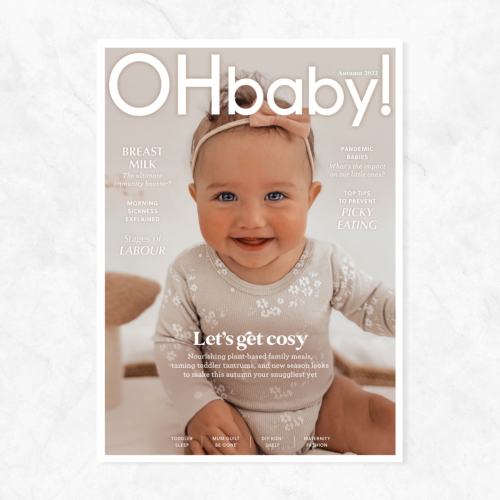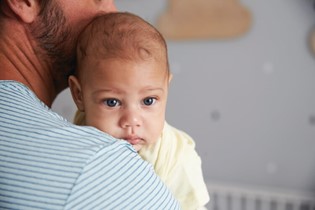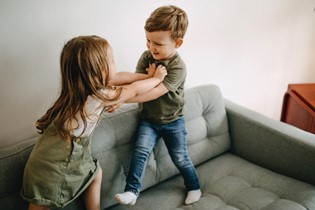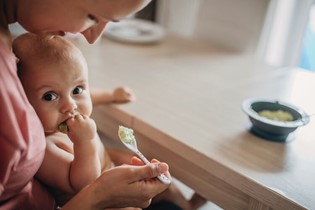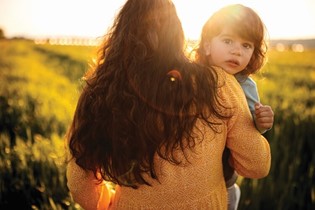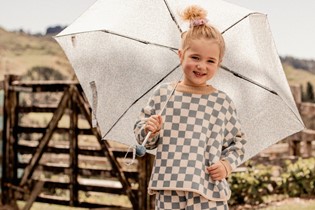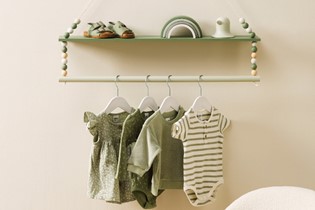Nathan Wallis on challenges facing parents today
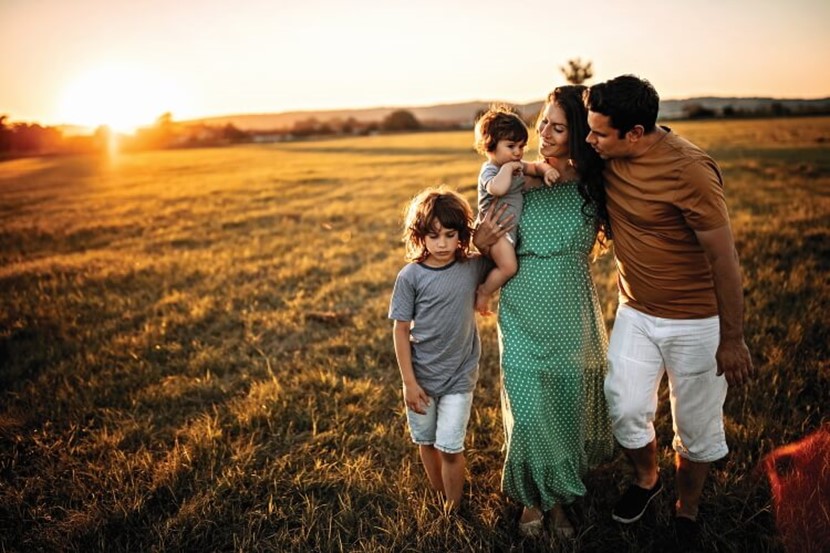
Holly Jean Brooker asks Neuroscience Educator and Parenting Expert, Nathan Wallis to weigh in on the very real challenges of parenting in the 21st century.
Every year, nib undertake the State of the Nation Parenting Survey, canvassing a range of parents around Aotearoa to determine which issues and concerns whānau are struggling with and where they are thriving. And again, this year’s results are fascinating.
KEEPING UP WITH THE JONES’
The parenting survey revealed that 66% of all parents and 72% of Maori parents admit that they feel pressure to keep up with other families with the holidays they go on, their kids having the latest trends (clothing, shoes, toys and games), and the tutoring and sporting achievements of their children.
Holly
We all compare ourselves from time to time, particularly in the early years of parenting when we see our friends' babies and toddlers hitting milestones before or after ours. Why do we do this to ourselves?
Nathan
We do this because the human central nervous system is hierarchal, but we do ourselves a disservice when we compare. We have this idea that raising a child is a race – if I get my kids sleeping right through the night or walking early it’s good. And some of this comparing is good, it raises the bar and puts expectations on us to step it up. We see friends getting their kids to school on time with teeth and hair brushed and lunch packed, so we try to get our kids to school in the same way.
Naturally we want the absolute best for our child, it’s our life’s work, and this desire to keep up can be propelled from that heart for doing the best for our kids.
But we have to watch this if we have a personality type that can take things to the extreme. We don’t need to push our children to achieve ahead of the pack. Most parents aren’t aware of research around being first. The kid who walks first is often hyperactive. The baby who sleeps through the night isn’t as well off as the one who wakes four times for extra feeds to help his or her rapidly growing brain. Kids who learn to read very young, for example at age four, often end up with anxiety in later years.
There is a cultural perception that faster is better, but it’s not always true. Slow down, take your time, let them develop as they are ready. Pushing them when they aren’t developmentally ready is the same as going out to the rose garden and peeling rose petals back to help the rose open earlier, it doesn’t help them to flourish.
Holly
What can we do to help our kids navigate the pressure they may feel to fit in with their peers as they get older?
Nathan
This is multifaceted. I would encourage your child to find the things that they are individually good at rather than pushing them to achieve just to keep up.
When it comes to wanting the latest trends and games, this has to be negotiated within each family. It might depend on whether you can afford it, but even if you can, it’s also good to teach kids the value of stuff – to understand and learn about money and budgeting.
Maybe they could be involved in the decision-making process, for example their friends might have an iPad and Netflix and a PS4. But you can only afford one of these, so they can make the choice between these.
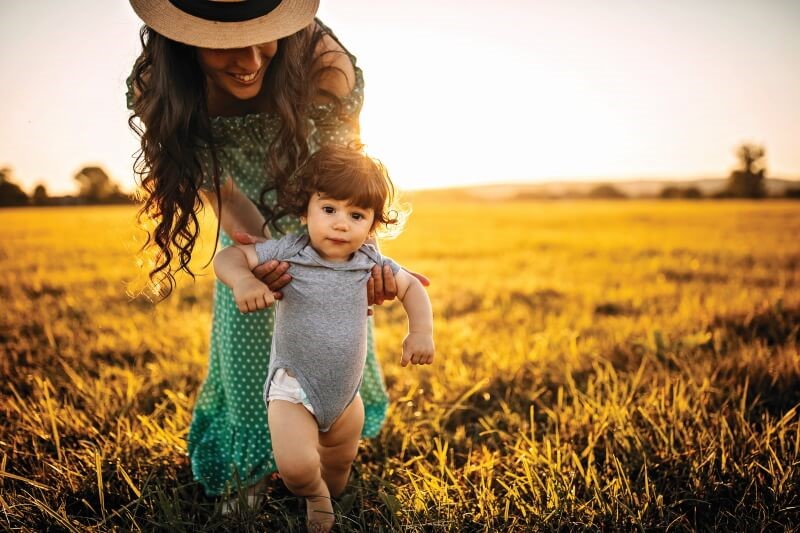
ARE OUR PARENTING SKILLS UP TO SCRATCH?
The nib State of the Nation Parenting Survey 2021 also revealed that three in four parents worry about whether they are doing a good enough job of raising their kids, and worry about the amount of time they spend with their children.
Holly
What are the benefits of quality time with parents/caregivers for kids aged 0-5?
Nathan
A lot of development happens in relationships, so the stronger the relationship between parent/caregiver and the child, the more they learn.
Focus on agency (the capacity of individuals to act independently and to make their own free choices) through child-directed play. Throughout the years 0-5, it’s essential that children have quality time with their parents. They have the closest relationship with the child and this connection strengthens their brain development in many ways.
The time we spend with our kids is dependent on a child's temperament. Little Charlotte might want three hours of time with you each day, and Charlie might need just 15 minutes of quality time. Regardless of the time we spend, connection is about quality. Turn off the TV, put down your phone, engage, make eye contact and be involved.
If you are directive in the way you are talking (talking at them) they won’t open up with you as much as they could. Hanging out can be really valuable if it’s child-led. Follow the child's lead, they have it innately programmed into them what they need, their biological system is developed in their brain and they know what they need to develop, and kids develop through play.
I often encourage parents to plan a regular date with their child, so it's repetitive and predictable, eg every Thursday at 3pm. It could just be a 10 minute date if you’re time-poor. Focus on the quality of conversation. For these 10 minutes, act like you aren’t the parent – you can’t correct them, ask questions, or tell them what to do. Parents find this really hard, so much of what we do is correcting and discipline. Let them lead. It allows them to listen and open up. If you aren’t pushed for time, have this philosophy spread out across the day in your regular interactions.
PARENTING IN THE DIGITAL ERA
The world is changing rapidly in this digital era, and it can be really hard to know how to parent in the best way when you’ve grown up in the 80’s or 90's, largely device-free.
There has been a huge increase in the use of devices at home. The nib State of the Nation Parenting Survey revealed that the top concern for 88% of parents is the impact of technology and screen time on their kids. Parents admit that they and their kids can’t live without their devices and sometimes use devices as a form of babysitter.
Holly
What are the biggest challenges parents are facing here in regard to technology?
Nathan
The biggest danger for kids 0-5 years old is having parents with their face in a screen constantly, and not engaging with their kids.
The best thing you could do is to not have a cellphone for their first year of life. These days, instead of kids hearing 20,000 words a day, they may hear 10,000 because of the distraction of screens in our lives. This causes less connection and communication with eye contact, so much of brain development is actually to do with the eye contact.
In terms of screen time, there is no real damage in occasional TV watching for younger kids. However, ages 0-2 years old shouldn’t be looking at a screen, it’s a 2D thing, it's damaging to their eye development.
From ages 2-5 years old, keep screen time low. Often parents use it as a babysitter and it can be damaging developmentally. Using a screen for a quick distraction for 15 minutes while you’re cooking dinner is okay, but when it carries over into long periods of time it's unhelpful. iPads and apps give kids an instant reward and dopamine hit, it’s addictive and it can take a while for them to come down from it. And be mindful of letting them watch or play games that are aggressive or violent.
Holly
If device use has become a big problem in a family and parents are struggling with it, how can they set limits or boundaries without major tantrums?
Nathan
The key is going to be ritual and routine. It’s hard to take an iPad off a three-year-old, but if they know they always lose it at the end of a particular show or game they will cope better. Give them warning – “You have 15 minutes left, 10 minutes left, five minutes, etc”. Then be supportive of them as they adjust to the new boundaries, instead of punitive, and stick to it. And help them settle into the next activity.

WHY ARE OUR KIDS STRUGGLING?
Let’s keep it real here, we aren’t parenting angels or robots. It’s normal for kids to have wild emotions and poor behaviour (especially when they are tired or 'hangry') at times. The nib State of the Nation Parenting Survey revealed that 71% of kids have experienced negative mental, physical or behavioural issues in the last six months – from difficulty regulating their emotions, to separation anxiety, irrational fears and phobias, and violent outbursts.
Holly
It’s been a challenging time for many of us in New Zealand with the pandemic and navigating lockdowns. How do you think this is contributing to behavioural changes in kids?
Nathan
Kids enjoy routine and regularity, and Covid has changed this. Perhaps now Mum and Dad are both home all day, and maybe are working at home instead of at the office. These changes are unsettling as the routine is different and kids do pick up on our stress. It might cause regression in some behaviour, for example, a child who has learnt to have dry nights might now wet the bed. Little regressions are normal, so ride it out.
This past couple of years has caused massive amounts of change for many of us. We are all under pressure. Sit and talk about life with your kids. When it comes to Covid, model a calm ‘she’ll be right’ mentality. If a child under five asks about Covid, don’t give them too much information, they are too young to handle it.
I like the 1, 2, 3 approach. 1. Calm them down. 2. Validate their emotions, “Yeah it is a bit scary with everything being a bit different at the moment”. And 3. Model a positive cognitive strategy so they feel supported, and affirm a positive action they can take.
In some ways lockdowns and working from home have meant that we have been more connected within our families. For kids under two years old, lockdown has been amazing, they aren’t in daycare all day and instead are at home all day with a caregiver. Having that time together is essential for child development.
For warning signs that things are a little more serious, watch the basics of the top three needs we all have: food, sleep and attachment. If any of these three things change drastically, these are dangerous signs. It might be that the kid who could connect easily now withdraws, the kid who slept through, now takes hours to settle at night and wakes in the night, they might have lost interest in food. Get advice from your village firstly. Often there is good advice to be found from talking to people like your mum or grandmother, or even the old lady on your street who has been around the block a few times as a parent. If it’s more serious and you’re not getting the balance back, get professional help, depending on what type of concern you have.

AS FEATURED IN ISSUE 57 OF OHbaby! MAGAZINE. CHECK OUT OTHER ARTICLES IN THIS ISSUE BELOW
